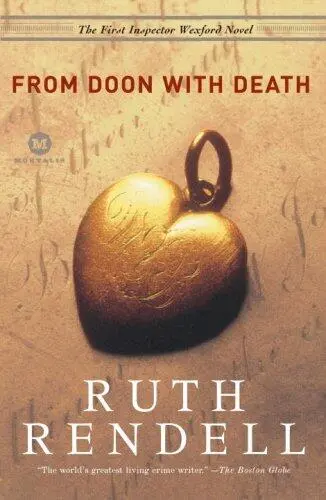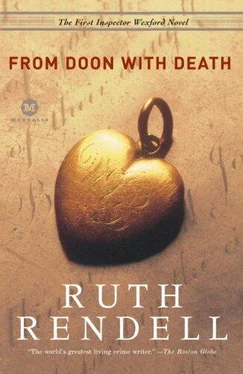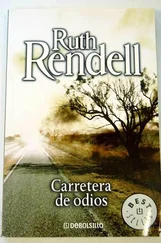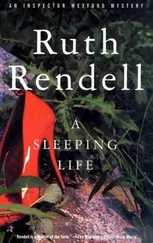
You have broken my heart There, I have written it. Not for you to read, Minna, for this letter will never be sent, never shrink and wither under your laughter, little lips prim and pleated, laughter like dulcimer music…
Shall I tell you of the Muse who awaited me? I wanted you to walk beside me into her vaulted halls. There were the springs of Helicon! I would furnish you with the food of the soul, the bread that is prose and the wine that is poetry. Ah, the wine, Minna… This is the rose-red blood of the troubadour!
Never shall I make that journey, Minna, for when I brought you the wine you returned to me the waters of indifference. I wrapped the bread in gold but you hid my loaves in the crock of contempt.
Truly you have broken my heart and dashed the wine-cup against the wall…
Call once yet,
In a voice that she will know,
‘Margaret, Margaret!’
Matthew Arnold,
The Forsaken Merman
‘ I think you’re getting things a bit out of proportion, Mr Parsons’ Burden said. He was tired and he’d been going to take his wife to the pictures.
Besides, the first things he’d noticed when Parsons brought him into the room were the books in the rack by the fireplace. The titles were enough to give the most level-headed man the jitters, quite enough to make a man anxious where no ground for anxiety existed: Palmer the Poisoner, The Trial of Madeleine Smith, Three Drowned Brides, Famous Trials, Notable British Trials.
Don’t you think your reading has been preying on your mind?’
‘I’m interested in crime,’ Parsons said. It's a hobby of mine.’
‘I can see that.’ Burden wasn’t going to sit down if he could avoid it. Took, you can’t say your wife’s actually missing. You’ve been home one and a half hours and she isn’t here. That’s all. She’s probably gone to the pictures. As a matter of fact I’m on my way there now with my wife. I expect well meet her coming out.’
‘Margaret wouldn’t do that, Mr Burden. I know her and you don’t. We’ve been married nearly six years and in all that time I’ve never come home to an empty house.’
‘I’ll tell you what I’ll do. I’ll drop in on my way back. But you can bet your bottom dollar she’ll be home by then.’ He started moving towards the door.
‘Look, get on to the station if you like. It won’t do any harm.’
‘No, I won’t do that. It was just with you living down the road and being an inspector…’
And being off duty. Burden thought. If I was a doctor instead of a policeman I’d be able to have private patients on the side. I bet he wouldn’t be so keen on my services if there was any question of a fee.
Sitting in the half-empty dark cinema he thought: Well, it is funny. Normal ordinary wives as conventional as Mrs Parsons, wives who always have a meal ready for their husbands on the dot of six, don’t suddenly go off without leaving a note.
‘I thought you said this was a good film,’ he whispered to his wife.
‘Well, the critics liked it.’
‘Oh, critics,’ he said.
Another man, that could be it. But Mrs Parsons? Or it could be an accident. He’d been a bit remiss not getting Parsons to phone the station straight away.
‘Look, love,’ he said. ‘I can’t stand this. You stay and see the end. I’ve got to get back to Parsons.’
‘ I wish I’d married that reporter who was so keen on me.’
‘You must be joking,’ Burden said. ‘He’d have stayed out all night putting the paper to bed. Or the editor’s secretary.’
He charged up Tabard Road, then made himself stroll when he got to the Victorian house where Parsons lived. It was all in darkness, the curtains in the big bay downstairs undrawn. The step was whitened, the brass kerb above it polished. Mrs Parsons must have been a house-proud woman.
Must have been? Why not, still was?
Parsons opened the door before he had a chance to knock. He still looked tidy, neatly dressed in an oldish suit, his tie knotted tight. But his face was greenish grey. It reminded Burden of a drowned face he had once seen on a mortuary slab. They had put the glasses back on the spongy nose to help the girl who had come to identify him.
‘She hasn’t come back,’ he said. His voice sounded as if he had a cold coming. But it was probably only fear.
‘Let’s have a cup of tea,’ Burden said. ‘Have a cup of tea and talk about it.’
‘I keep thinking what could have happened to her. It's so open round here. I suppose it would be, being country.’
‘It’s those books you read,’ Burden said. It's not healthy.’ He looked again at the shiny paper covers. On the spine of one was a jumble of guns and knives against a blood-red background. ‘Not for a layman,’ he said. ‘Can I use your phone?’
‘It’s in the front room.’
‘I’ll get on to the station. There might be something from the hospitals.’
The front room looked as if nobody ever sat in it. With some dismay he noted its polished shabbiness. So far he hadn’t seen a stick of furniture that looked less than fifty years old. Burden went into all kinds of houses and he knew antique furniture when he saw it. But this wasn’t antique and nobody could have chosen it because it was beautiful or rare. It was just old. Old enough to be cheap, Burden thought, and at the same time young enough not to be expensive. The kettle whistled and he heard Parsons fumbling with china in the kitchen. A cup crashed on the floor. It sounded as if they had kept the old concrete floor. It was enough to give anyone the creeps, he thought again, sitting in these high-ceilinged rooms, hearing unexplained inexplicable creaks from the stairs and the cupboard, reading about poison and hangings and blood.
‘I’ve reported your wife as missing,’ he said to Parsons. There’s nothing from the hospitals.’
Parsons turned on the light in the back room and Burden followed him in. It must have a weak bulb under the parchment lampshade that hung from the centre of the ceiling. About sixty watts, he thought. The shade forced all the light down, leaving the ceiling, with its plaster decorations of bulbous fruit, dark and in the corners blotched with deeper shadow. Parsons put the cups down on the sideboard, a vast mahogany thing more like a fantastic wooden house than a piece of furniture, with its tiers and galleries and jutting beaded shelves. Burden sat down in a chair with wooden arms and seat of brown corduroy. The lino struck cold through the thick soles of his shoes.
Have you any idea at all where your wife could have gone?’
‘I’ve been trying to think. I’ve been racking my brains. I can’t think of anywhere.’
‘What about her friends? Her mother?’
‘Her mother’s dead. We haven’t got any friends here. We only came here six months ago.’
Burden stirred his tea. Outside it had been close, humid. Here in this thick-walled dark place, he supposed, it must always feel like winter.
‘Look,’ he said, ‘I don’t like too say this, but somebody’s bound to ask you. It might as well be me. Could she have gone out with some man? I’m sorry, but I had to ask.’
‘Of course you had to ask. I know, it’s all in here.’ He tapped the bookcase, ‘ just routine enquiries, isn’t it? But you’re wrong. Not Margaret. It's laughable.’ He paused, not laughing. ‘Margaret’s a good woman. She’s a lay preacher at the Wesleyan place down the road.’
Читать дальше












